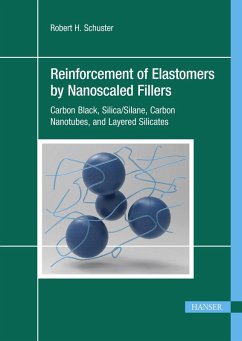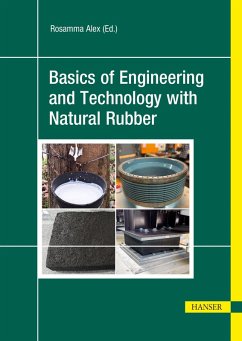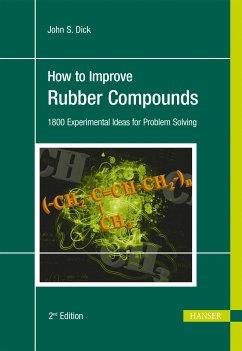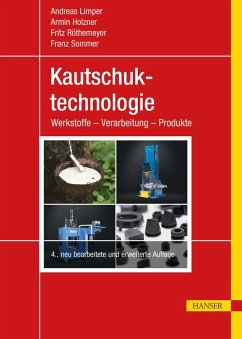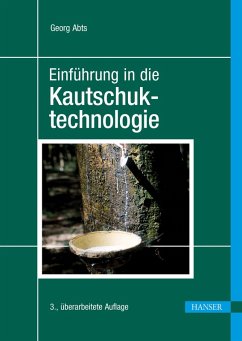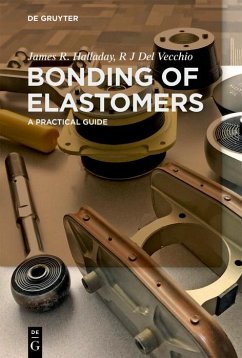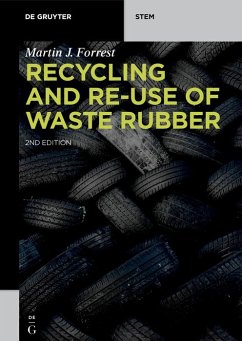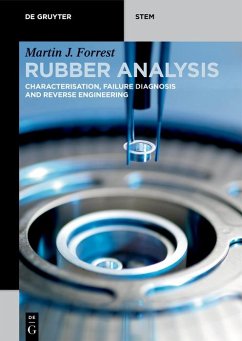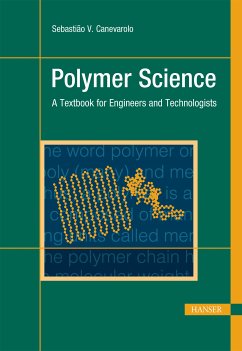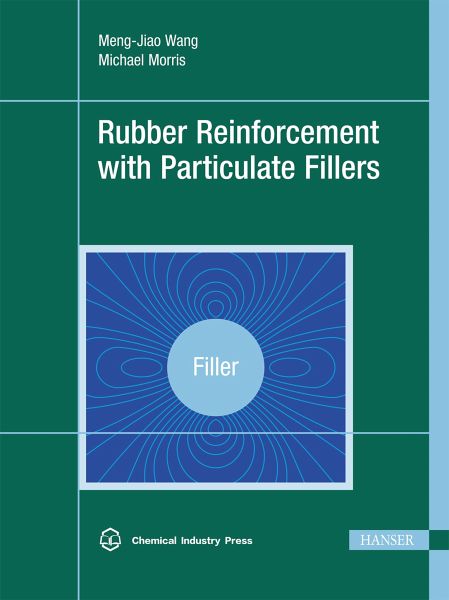
Rubber Reinforcement with Particulate Fillers (eBook, PDF)

PAYBACK Punkte
74 °P sammeln!
In the rubber industry, one of the most widely practiced processes is the reinforcement of rubber by particulate fillers, especially carbon black and silica. This process is of such importance that more than 99% of rubber products contain fillers, and the research and development of fillers have become the most widely researched area in rubber science and technology. This book covers the most important theoretical and practical aspects of rubber reinforcement, such as filler basic properties and their characterization methods, the effect of fillers in polymers, the processability of compounds,...
In the rubber industry, one of the most widely practiced processes is the reinforcement of rubber by particulate fillers, especially carbon black and silica. This process is of such importance that more than 99% of rubber products contain fillers, and the research and development of fillers have become the most widely researched area in rubber science and technology. This book covers the most important theoretical and practical aspects of rubber reinforcement, such as filler basic properties and their characterization methods, the effect of fillers in polymers, the processability of compounds, and the properties of filled vulcanizates. Special chapters deal with applications of fillers in tires and industrial rubber goods and the reinforcement of silicone rubbers. Testing methods and their principles, applications, and limitations are reviewed, with emphasis on the surface activity, widely accepted as the "third dimension" of filler characterization, after particle size and structure. This has not been described in depth in other books on rubber reinforcement. The effects of fillers on rubber and their mechanisms, which are important links between filler properties and the performance of rubber goods, are explained. A guide for selecting the most appropriate reinforcing systems for specific applications is provided, taking into account processabilities and properties of filled compounds and performance of rubber products. With solutions to many practical problems related to rubber research and compounding, this book serves as a valuable companion to engineers and product developers in the rubber industry, material scientists, and teachers and students in material science and rubber courses.
Dieser Download kann aus rechtlichen Gründen nur mit Rechnungsadresse in A, D, L ausgeliefert werden.




